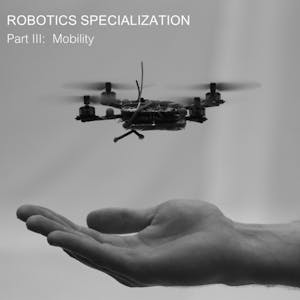Discover the fascinating world of robot mobility in the course "Robotics: Mobility" offered by the University of Pennsylvania. This comprehensive course delves into the utilization of motors and sensors by robots to navigate through unstructured environments. Through a blend of theoretical concepts and practical applications, students will gain insights into the design of robot bodies and behaviors that enable reliable mobility in complex and dynamic settings.
The course covers a wide array of topics, including the comparison of mobility in animals and robots, the kinematics and dynamics of legged machines, and the creation of dynamical behavior using energy landscapes. As students progress through the modules, they will explore the principles and applications of behavioral and physical templates, embodied behaviors, and programming work, equipping them with the knowledge and skills to design and control robots for enhanced mobility.
Embark on a captivating journey into the realm of robotics and mobility, and elevate your expertise in creating and controlling robots that can navigate and adapt to diverse and challenging environments.
Certificate Available ✔
Get Started / More Info
This course comprises modules covering a range of topics, including the comparison of mobility in animals and robots, the kinematics and dynamics of legged machines, and the design of dynamical behavior using energy landscapes.
Module 1: Introduction: Motivation and Background
Module 2: Behavioral (Templates) & Physical (Bodies)
Module 3: Anchors: Embodied Behaviors
Module 4: Composition (Programming Work)
This specialization provides an introduction to additive manufacturing (AM) with exposure to six different AM processes, covering build preparation, machine setup,...
Statistical Thermodynamics explores the relationship between macroscopic and microscopic thermodynamics, ideal and dense gases, and non-equilibrium behavior. Understand...
Generative Design for Additive Manufacturing introduces CAD design and advanced Fusion 360 workflows for 3D metal printing. Learn generative setup and post-processing...
This course delves into the analysis and design of engineering structures, covering deflections, buckling, combined loading, and failure theories.